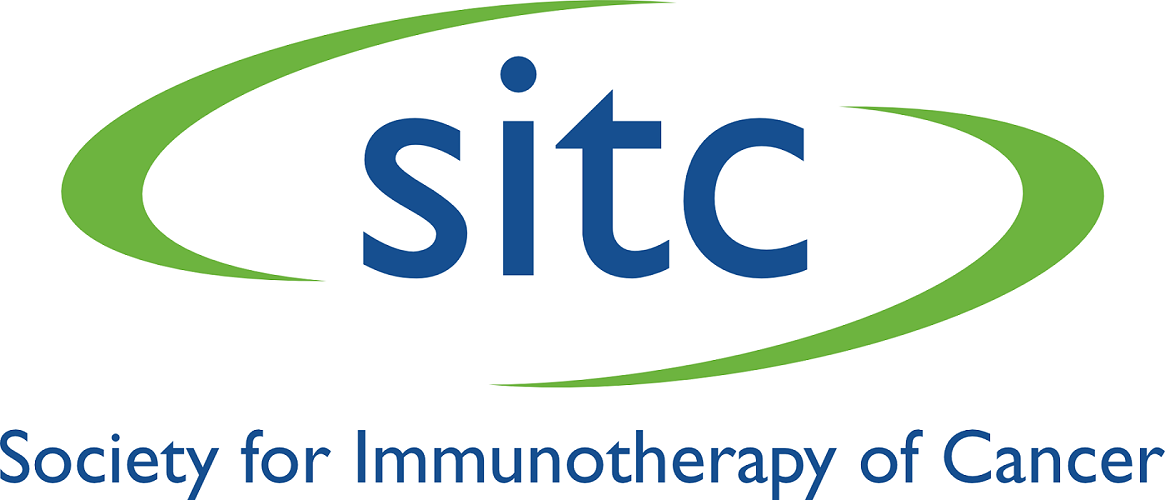
The Society for Immunotherapy of Cancer (SITC) is pleased to offer physicians and qualified healthcare providers the opportunity to earn a Certificate in Cancer Immunotherapy, supporting their knowledge and skills to provide effective and safe care for patients treated with cancer immunotherapy. Learners can expect to develop a comprehensive understanding of cancer immunotherapies, including checkpoint inhibitors, cell therapies and many others, as well as the management of side effects, allowing them to successfully implement immunotherapy in clinical practice.
The Certificate in Cancer Immunotherapy consists of eight learning modules and a final assessment. You will earn SITC Graduate in Cancer Immunotherapy (SITC-G) certificate upon successfully completing all the 8 modules and qualfying in the final assessment. The SITC-G certificate identifies a healthcare provider as completing specialized training in cancer immunotherapy. All modules are approved for CME, CNE, CPE and MOC credits, except where noted.
SITC Graduate in Cancer Immunotherapy / SITC-G

Cost of certification
- SITC Member Price: $200
- Non-Member Price: $250
- SITC Member Price for Low to Lower-Middle Income Economies: $0*
*Note: This is not available to those in the industry work setting.
Click here for the List of Low to Lower-Middle Income Economies
Target Audiences
The primary target audience for the program is treating physicians (U.S. licensed MD / DO or global equivalent). The courses and earning of the certificate will also be available to practicing, licensed NPs, PAs, and PharmDs (or RPh degree holders involved in direct clinical services), or global equivalent. The courses will be available to those who are not practicing clinicians, but they will not be eligible to earn the certificate.
Requirements
The requirements to earn the certificate include:
- Must be a treating physician (U.S. licensed MD / DO or global equivalent), or a practicing licensed NP, PA, PharmD or RPh degree holder involved in direct clinical services, or global equivalent
- Complete the coursework (all eight modules)
- anticipated to be approximately 1 hour each, for a total of 8 hours
- Pass all end-of-module assessments
- Successfully complete a comprehensive exam covering all modules
Certificate Term
The certificate term is two years. Then, to earn a current certificate, which allows one to continue to use the SITC-G designation, an individual will need to take and pass updated coursework and assessments. If one misses the deadline for reissuance, he or she will need to retake and pass the full program.
Certificate Program Task Force
Chair
- Robert L. Ferris, MD, PhD – University of Pittsburgh Medical Center Hillman Cancer Center
Members
- Umar Farooq, MD – University of Iowa
- Silvia Formenti, MD – Weill Cornell Medicine
- Sigrun Hallmeyer, MD – Advocate Medical Group
- Jose Lutzky, MD, FACP – University of Miami Sylvester Cancer Center
- George Weiner, MD – University of Iowa
Requirements
The requirements to earn the certificate include:
• Complete the coursework (all eight modules)—anticipated to be approximately 1.5 hours each for a total of 12–16 hours
• Successfully complete a comprehensive exam covering all modules
Learner Notification
This program consists of eight modules. Continuing Education credit information for the modules can be found below, and at the module level. Please note, that each module counts for a maximum of 1.50 AMA PRA Category 1 Credits™ for physicians and 1.50 contact hours for nurses and 1.50 knowledge-based contact hours for pharmacists.
Continuing Education (CE) Language
Certificate in Cancer Immunotherapy Webseries Online
Physicians / Nurses / Pharmacists

In support of improving patient care, this activity has been planned and implemented by Partners for Advancing Clinical Education (Partners) and Society for Immunotherapy of Cancer (SITC). Partners is accredited by the Accreditation Council for Continuing Medical Education (ACCME), the Accreditation Council for Pharmacy Education (ACPE), and the American Nurses Credentialing Center (ANCC), to provide continuing education for the healthcare team.
Credit Designation Statement – Upon successful completion of all content in this program, Partners designatse this enduring material for a maximum of 8.5 AMA PRA Category 1 CreditsTM for physicians and 8.5 contact hours for nurses and 8.5 knowledge-based contact hours for pharmacists. Learners should claim only the credit commensurate with the extent of their participation in the activity.
NOTE to Pharmacists: The only official Statement of Credit is the one you pull from CPE Monitor. You must request your certificate within 30 days of the activity to meet the deadline for submission to CPE Monitor.
ABIM MOC Credit
Successful completion of this CME activity, which includes participation in the evaluation component, enables the participant to earn up to 8.5 Part 2 MOC points in the American Board of Internal Medicine's (ABIM) Maintenance of Certification (MOC) program.
